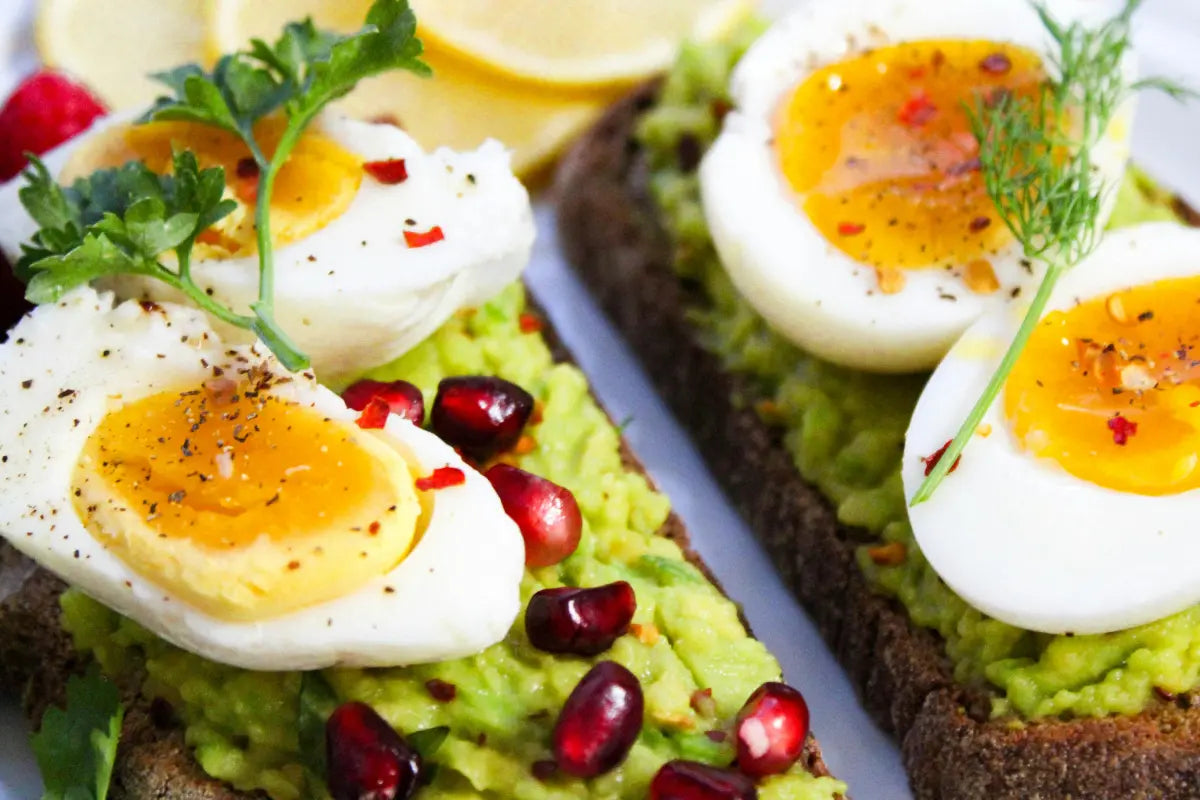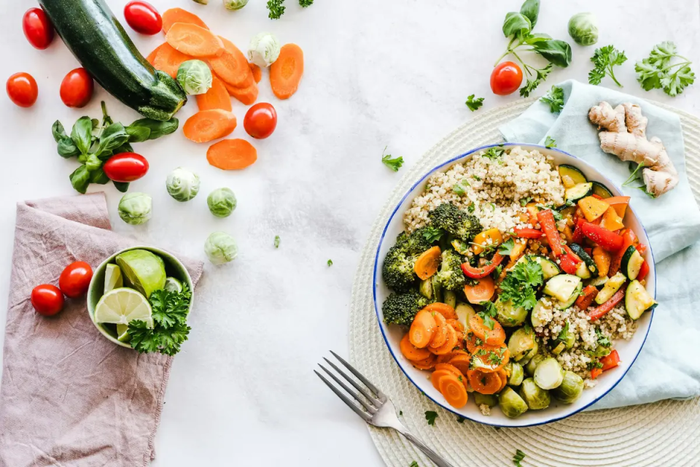Folate, also known as vitamin B9, is a pretty important nutrient no matter who you are. So important in fact, that more than 80 countries recently introduced legislation to fortify flour in stores with folic acid1 – the synthetic version of folate.
It’s so important to your nutrition, not just because of the benefits it offers (and we’ll get into those) but also because it’s water soluble, which means your body can’t store large amounts of it. As such, we need a steady supply of it in our diet to make sure our body keeps doing its job properly.
If you’re wondering just what the benefits of folate are, some examples of foods with folate content or maybe you’re looking for a folate supplement, you’re in the right place.
Allow us to share…
What are the benefits of folate?
Folate plays a big role in some of the most important bodily functions – here’s a quick look at some of the biggest benefits of folate.
Healthy pregnancy and fetal development
Folate is very well known for its role in preventing neural tube defects in babies. These defects include spina bifida but consuming the right amount of folate before and during pregnancy can greatly reduce this risk2.
Folate is important here as it helps to form a healthy neural tube, which is the structure that develops into a brain and spinal cord. Most health guidelines recommend women take 400 mcg of folic acid every day3, up until they’re 12 weeks pregnant, but others recommend up to 600 mcg per day.
Red blood cells
Without folate, red blood cells can’t divide properly – which, if you weren’t aware, can be a big problem.
If you’re deficient in folate, you can develop large, misshapen red blood cells which can lead to megaloblastic anaemia. This can bring on symptoms4 like shortness of breath, fatigue, paleness and lethargy.
Heart health
Homocysteine is an amino acid which has been linked with cardiovascular problems5 and folate plays a very important role in helping to break it down.
Without enough folate in the body, your concentration of homocysteine can rise and pose some significant risks.
Cognitive function
Folic acid supplementation has also been shown to support cognitive function6, especially in the elderly.
Cell growth and repair
Last but certainly not least, folate is also crucial for growth and repair throughout the body7. This includes healing wounds and renewing skin cells – essentially it’s a vital part of any healthy body.
How much folate do I need?
The amount of folate you need depends on your age and whether you are trying for a baby, pregnant or breastfeeding. Here’s an overview of the recommended daily folate dosages8 for each:
- 0-6 months: 65 mcg
- 7-12 months: 80 mcg
- 1-3 years: 150 mcg
- 4-8 years: 200 mcg
- 9-13 years: 300 mcg
- 14-18 years: 400 mcg
- 19+ (adults): 400 mcg
- During pregnancy: 600 mcg
- When breastfeeding: 500 mcg
However, it’s important not to take too much. Over-supplementing folate can worsen the symptoms of vitamin B12 deficiency and potentially cause some other issues9.
Tips for getting enough folate
Examples of foods with folate
Thankfully, there are lots of foods with folate content. You can be pretty confident in your folate levels if you eat plenty of:
- Leafy greens (e.g. spinach or kale)
- Fruits (e.g. oranges, bananas)
- Legumes (e.g. lentils or chickpeas)
- Fortified cereals and breads
- Liver (one of the best sources, although it can be a bit of an acquired taste for most…)
However, it’s not just the food you eat but also the way you prepare it. Believe it or not, boiling these foods can reduce the levels of folate quite significantly. Folate is water-soluble and heat-sensitive, so to maximise its content we’d suggest steaming or sautéing rather than boiling.
Folate supplements
For many people, diet alone is enough to get their recommended amount of folate - but not for everyone. Whether you’re planning pregnancy, suffer from intolerances or health issues like Crohn’s or celiac disease, or you’re a heavy drinker, there can be a lot of things that get in the way of your body absorbing folate.
If this sounds like you or you simply struggle to get enough folate in your diet, it might be time to consider folate supplements. However, as with anything new you’re adding to your diet, it really pays to make sure you’re getting it from a trusted source. That’s why we’ve worked to craft a perfect blend of self-care nutrients in the form of The Glow Blend.
Packed with folate as well as collagen, hyaluronic acid, biotin and vitamin C, The Glow Blend keeps you topped up on all the nutrients you need to look and feel your best.
Folate – the verdict
It’s official – folate is important stuff. It’s essential for growth and development, heart and brain health, wound recovery and overall health. If you’re pregnant, it’s a must – if you aren’t pregnant… it’s still kinda a must.
Fill your diet with leafy greens, fruits and legumes, and use quality supplements to keep you topped up where needed. That’s the long and short of it!
References
- L. Tilt, What is folate and why do I need it? BBC Food. Click here.
- Folic Acid: Facts for Clinicians, U.S. Centers for Disease Control and Prevention, May 2025. Click here.
- Vitamins, supplements and nutrition in pregnancy, NHS, Sept 2023. Click here.
- NIH, Your Guide To Anaemia. Click here.
- Ganguly P, Alam SF. Role of homocysteine in the development of cardiovascular disease. Nutr J. 2015 Jan 10;14:6. doi: 10.1186/1475-2891-14-6. PMID: 25577237; PMCID: PMC4326479. Click here.
- Enderami A, Zarghami M, Darvishi-Khezri H. The effects and potential mechanisms of folic acid on cognitive function: a comprehensive review. Neurol Sci. 2018 Oct;39(10):1667-1675. doi: 10.1007/s10072-018-3473-4. Epub 2018 Jun 23. PMID: 29936555. Click here.
- Zhang XJ, Chinkes DL, Herndon DN. Folate stimulation of wound DNA synthesis. J Surg Res. 2008 Jun 1;147(1):15-22. doi: 10.1016/j.jss.2007.07.012. Epub 2007 Aug 22. PMID: 18028951. Click here.
- Folate Fact Sheet for Consumers, National Institutes of Health. Click here.


















